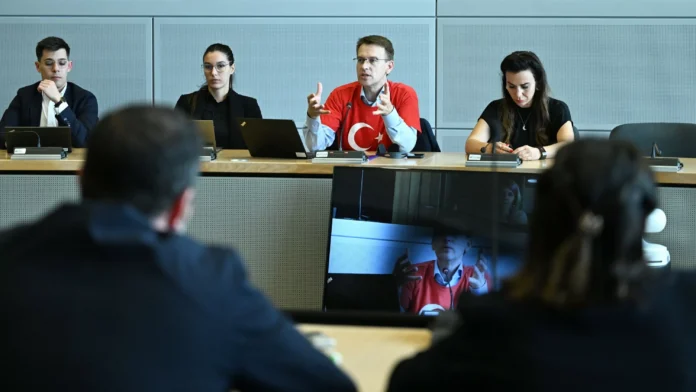Turkey and the European Union (EU) have a long-standing relationship that dates back to the 1960s. Over the years, both sides have recognized the mutual benefits of closer cooperation and have worked towards strengthening their ties. However, it is disheartening to see that despite their shared interests, there has been little progress made in Turkey’s accession negotiations with the EU. As the Lead Spokesperson for the European Commission recently stated, this lack of progress is a cause for concern and must be addressed.
Turkey’s journey towards EU membership began in 1987 when it applied for associate membership. Since then, it has made significant strides in aligning its laws and regulations with EU standards, implementing political and economic reforms, and improving human rights and democracy. These efforts have not gone unnoticed, and the EU has acknowledged Turkey’s progress through various reports and statements.
On the other hand, the EU also recognizes the strategic importance of Turkey as a key partner in the region. Turkey’s geographical location, its role as a bridge between Europe and Asia, and its economic potential make it a valuable ally for the EU. Furthermore, Turkey’s membership would also strengthen the EU’s position as a global player and enhance its influence in the Middle East.
Despite these shared interests, Turkey’s accession negotiations have been at a standstill for several years. The main reason for this is the lack of political will on both sides. Turkey’s democratic backsliding and human rights violations have been a cause for concern for the EU, while Turkey feels that it is not being treated fairly and that its efforts are not being recognized.
However, it is crucial to move past these obstacles and focus on the bigger picture. Both Turkey and the EU need each other for various reasons, and it is time to work towards finding a solution that benefits both sides. The EU must acknowledge Turkey’s progress and give it the recognition it deserves. At the same time, Turkey must continue its efforts towards political and economic reforms and address the EU’s concerns.
One of the main issues that have hindered Turkey’s accession negotiations is the Cyprus dispute. The EU has made it clear that a resolution to this conflict is a prerequisite for Turkey’s membership. As the EU’s Lead Spokesperson stated, “a solution to the Cyprus issue would be a game-changer for the accession negotiations.” It is time for both sides to work towards finding a lasting solution that benefits all parties involved.
Another issue that needs to be addressed is the visa liberalization process for Turkish citizens. Turkey has fulfilled all the necessary requirements for this, but the EU has not yet delivered on its promise. This has caused frustration and disappointment among the Turkish people, who see this as a lack of commitment from the EU’s side. The EU must fulfill its promise and grant visa liberalization to Turkish citizens, which would not only strengthen people-to-people ties but also boost economic and cultural exchange between Turkey and the EU.
Furthermore, the EU must also take into account Turkey’s concerns regarding the refugee crisis. Turkey has been hosting millions of refugees, and the EU has recognized its efforts in this regard. However, Turkey has also expressed its disappointment with the EU’s lack of support in sharing the burden of the refugee crisis. The EU must step up and provide more assistance to Turkey in dealing with this humanitarian crisis.
It is also essential for both sides to focus on the positive aspects of their relationship. Turkey and the EU have a long history of cooperation in various fields, including trade, energy, and security. These ties must be further strengthened and expanded, as they benefit both sides. Moreover, Turkey’s membership would also open up new opportunities for the EU, such as access to new markets and resources.
In conclusion, it is clear that Turkey and the EU need each other for various reasons. Their relationship is based on shared interests and values, and it is crucial to work towards finding a solution that benefits both sides. As the Lead Spokesperson for the European Commission stated, “the EU and Turkey must continue to engage constructively and work together towards a positive agenda.” It is time to move past the obstacles and focus on the bigger picture, which is a stronger and more prosperous partnership between Turkey and the EU. Let us not lose sight of the potential benefits of Turkey’s membership and work towards making it a reality.


